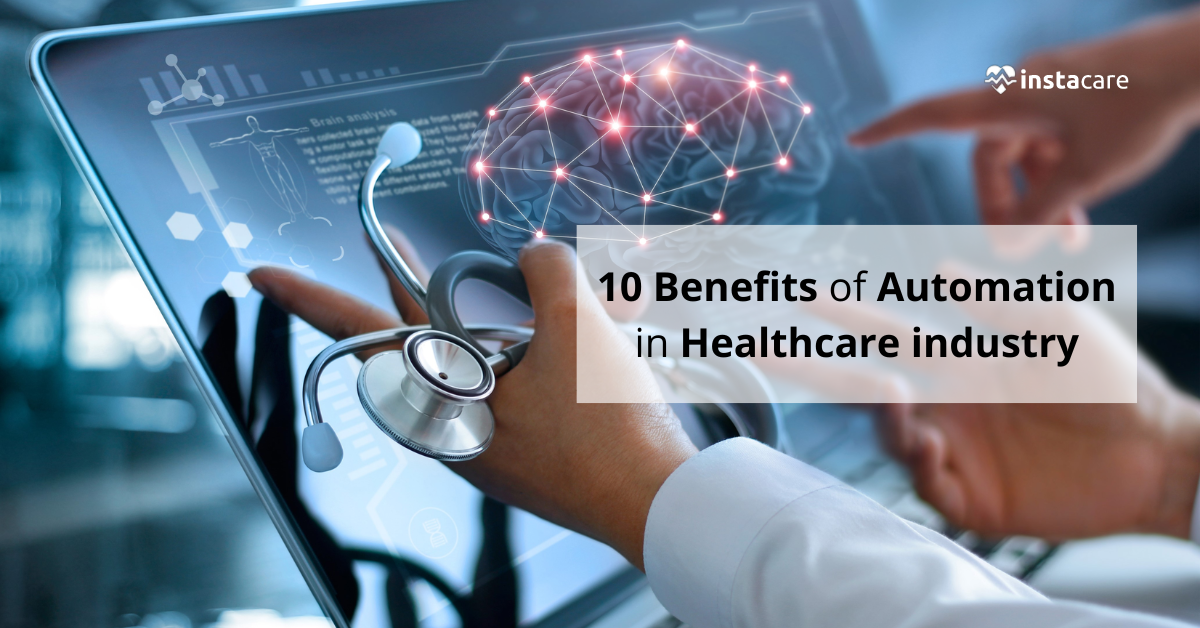Last updated on Tuesday, 8, April, 2025
Table of Contents
10 Benefits Of Automation In Healthcare Industry
It’s important to understand what automation in healthcare actually entails first. Although vendors frequently claim that their goods or services include some automation, this isn’t always the case. Products that must be started by staff members before they can function aren’t truly automated.
True automation in healthcare based services and products operate in the background without constant attention. Automated solutions are those that can complete a sequence or task, even when staff members are not aware they are doing so. Remember that for a solution to qualify as automatic, it must be able to start, run, and finish without the need for human involvement or assistance. Benefits of automation in healthcare are as follows:
Lower Costs
One of the main benefits of automation in healthcare is helps lower costs. Automation helps do this in several ways, such as
- Reduced errors
- Less overtime
- Superior efficiency
Automation allows practitioners to complete even more tasks in a shift, which reduces overall stress. The decrease in overtime also enables staff to devote more time to patient care, resulting in fewer medical errors necessitating significant payouts.
View More: 5 Reasons Why Your Paper Based System is Slowing Your Practice Down
Easy Scheduling
Due to scheduling conflicts and the requirement to match patients with the appropriate location and provider, manual scheduling requires time and frequently proves challenging. This can be done more successfully by automating scheduling, which improves the effectiveness of making and canceling appointments.
Improved Information Access and Transfer
Automation of data transfer and immediate addition of patient data after collection to a database Data sharing with other departments or organizations is made simple as a result. In the healthcare sector, data sharing is frequently a challenge, and automating this procedure eases treatment workflow bottlenecks when several departments must collaborate on a patient’s diagnosis or treatment.
Changing With The Times
Many healthcare systems now use machine learning, a form of automation, to more easily adapt to change, such as sudden changes in patient volume. This frequently helps emergency rooms because it enables them to change their staffing levels as patient volumes change. Additionally, it reduces ambulatory service wait times.
Decrease In Errors
Reduced human involvement in automated care lowers the possibility of human error. Although automated provider tools are used to aid in patient diagnosis and treatment, automating administrative operations processes also has significant advantages.
Rapidity And Accuracy Of Diagnoses
When diagnosing patients, especially those with serious illnesses, time is of the essence. The likelihood of more serious complications or even death rises when a diagnosis is postponed. Automating procedures enables clinicians to provide patients with quicker, more accurate results.
Improving Patient Privacy
Respecting the Health Insurance Portability and Accountability Act is crucial for safeguarding patients’ protected health information and personally identifiable information. By automating case management data, it is possible to ensure HIPAA compliance and limit access to personal health information to only those who are authorized.
Managing Healthcare Workflows
Operating healthcare facilities requires managing a variety of workflows, including remote monitoring, hiring, scheduling, and supervising staff as well as case management, utilization management, and patient wellness. Every workflow contains details about common but crucial tasks that are necessary for patients and providers. Staff must invest a lot of time in manually managing these workflows.
Improved Patient Satisfaction
Patient satisfaction is influenced by many variables. While the caliber of care received is an important consideration, patients’ satisfaction is also impacted by how simple it is to check in, schedule appointments, and complete those appointments. Patient satisfaction is also impacted by the overall appointment time, which includes wait time and the time it takes to schedule an appointment.
Improved Clinical Diagnosis And Decision-Making
One of the main benefits of automation in healthcare is that it can improve clinical judgments and support evidence-based practice, which combines clinical practice with the application of research to identify the best methods for diagnosis and treatment.
Conclusion
Automation in healthcare continues to become more common in the healthcare industry, and many tasks within healthcare lend themselves to automation. For the best Automation in healthcare industry feel free to contact us https://instacare.com.pk/.



